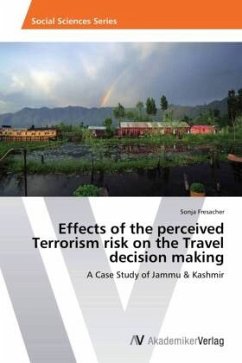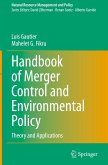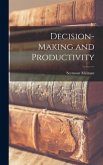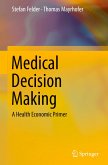Sustainability and Environmental Decision Making
Herausgeber: Schubert, Renate; Quah, Euston
Sustainability and Environmental Decision Making
Herausgeber: Schubert, Renate; Quah, Euston
- Gebundenes Buch
- Merkliste
- Auf die Merkliste
- Bewerten Bewerten
- Teilen
- Produkt teilen
- Produkterinnerung
- Produkterinnerung
The primary aim of this reference volume is to provide an accessible and comprehensive review of current methods used to address resource evaluation and environmental as well as climate issues, and in a manner easily understood by decision-makers and the non-economists interested in environmental policy matters. Theoretical insight and empirical observations from various countries will be presented and recommendations on sustainable environmental decision-making will be given. Natural resource managers, environmental and climate decision-makers, government policy makers, and economics scholars will all find this volume to be an essential reference.…mehr
Andere Kunden interessierten sich auch für
![Effects of the perceived Terrorism risk on the Travel decision making Effects of the perceived Terrorism risk on the Travel decision making]() Sonja FresacherEffects of the perceived Terrorism risk on the Travel decision making17,99 €
Sonja FresacherEffects of the perceived Terrorism risk on the Travel decision making17,99 €![Handbook of Merger Control and Environmental Policy Handbook of Merger Control and Environmental Policy]() Luis GautierHandbook of Merger Control and Environmental Policy193,99 €
Luis GautierHandbook of Merger Control and Environmental Policy193,99 €![Decision-making and Productivity Decision-making and Productivity]() Seymour MelmanDecision-making and Productivity36,99 €
Seymour MelmanDecision-making and Productivity36,99 €![Generative AI for Business Analytics and Strategic Decision Making in Service Industry Generative AI for Business Analytics and Strategic Decision Making in Service Industry]() Generative AI for Business Analytics and Strategic Decision Making in Service Industry305,99 €
Generative AI for Business Analytics and Strategic Decision Making in Service Industry305,99 €![Financial Literacy and the Limits of Financial Decision-Making Financial Literacy and the Limits of Financial Decision-Making]() Financial Literacy and the Limits of Financial Decision-Making116,99 €
Financial Literacy and the Limits of Financial Decision-Making116,99 €![Medical Decision Making Medical Decision Making]() Stefan FelderMedical Decision Making39,99 €
Stefan FelderMedical Decision Making39,99 €![Empirical Research on Environmental Policies in China Empirical Research on Environmental Policies in China]() Empirical Research on Environmental Policies in China100,99 €
Empirical Research on Environmental Policies in China100,99 €-
-
-
The primary aim of this reference volume is to provide an accessible and comprehensive review of current methods used to address resource evaluation and environmental as well as climate issues, and in a manner easily understood by decision-makers and the non-economists interested in environmental policy matters. Theoretical insight and empirical observations from various countries will be presented and recommendations on sustainable environmental decision-making will be given. Natural resource managers, environmental and climate decision-makers, government policy makers, and economics scholars will all find this volume to be an essential reference.
Hinweis: Dieser Artikel kann nur an eine deutsche Lieferadresse ausgeliefert werden.
Hinweis: Dieser Artikel kann nur an eine deutsche Lieferadresse ausgeliefert werden.
Produktdetails
- Produktdetails
- Verlag: Springer Nature Singapore / Springer Singapore
- 1st edition 2021
- Seitenzahl: 516
- Erscheinungstermin: 8. Juni 2021
- Englisch
- Abmessung: 241mm x 160mm x 32mm
- Gewicht: 1027g
- ISBN-13: 9789811592867
- ISBN-10: 9811592861
- Artikelnr.: 60154057
- Herstellerkennzeichnung Die Herstellerinformationen sind derzeit nicht verfügbar.
- Verlag: Springer Nature Singapore / Springer Singapore
- 1st edition 2021
- Seitenzahl: 516
- Erscheinungstermin: 8. Juni 2021
- Englisch
- Abmessung: 241mm x 160mm x 32mm
- Gewicht: 1027g
- ISBN-13: 9789811592867
- ISBN-10: 9811592861
- Artikelnr.: 60154057
- Herstellerkennzeichnung Die Herstellerinformationen sind derzeit nicht verfügbar.
Euston Quah is Albert Winsemius chair professor of economics and director of the Economic Growth Centre at Nanyang Technological University, Singapore. He is also editor of the Singapore Economic Review and president of the Economic Society of Singapore. Professor Quah has published widely in the fields of cost-benefit analysis, environmental economics, and law and economics. Contributing to more than a hundred publications, inclusive of academic journals and lead opinion pieces in media, Professor Quah has also served as external reviewer for some economics schools in various universities in Asia. Some of his works have been selected for inclusion by the International Library of Critical Writings in Economics in the UK as well as received favorable reviews in such leading journals as Economic Journal, Journal of Economic Literature, and the Journal of Labour Economics. His textbook with E.J Mishan, now in its 6th edition (Routledge, UK, 2020), is regarded as a classictext in this subject and used by many universities and governments. It was listed for reference by the US Office of Management and Budget and also by the US Department of Transportation. Professor Quah was listed in Google Scholar Profiler in 2020 as among the top ten most highly cited university economists in the area of cost-benefit analysis in the world. Formerly vice dean of the Faculty of Arts and Social Sciences at the National University of Singapore and headed the economics departments at both Nanyang Technological University and the National University of Singapore, Professor Quah has been and continues to be advisor to many government ministries in Singapore. Professor Quah chaired the School of Humanities and Social Sciences at NTU. He is a member of the Social Sciences Research Council of Singapore, board member of the Competition and Consumer Commission of Singapore, and board member of the Market Surveillance and Compliance Committee of Singapore's Energy Market Company. Professor Quah is a recipient of the Public Administration Medal (Silver) in 2020. Professor Renate Schubert is a professor of economics and a dedicated researcher and teacher. Her key focus is on behavioral economics, environmental and energy economics, social and political analyses, as well as digitization topics. Besides research and teaching, Professor, Schubert is an advisor to governmental committees and an experienced expert in assessments of research projects and research institutions. For many years, Professor Schubert has been professor of economics at ETH Zurich (Switzerland). In 2015 she joined the Singapore-ETH Center (SEC) to run projects in the FRS (Future Resilient Systems) program as well as in the Cooling Singapore and Heat Safe Singapore cluster. She has been involved in projects coping with the mitigation of urban heat effects, assessing the costs and benefits as well as thecitizens' willingness- associated with different mitigation measures. Measuring, modelling, and enhancing social resilience in case of natural but also pandemic disasters is part of her project portfolio. Furthermore, Professor, Schubert's research has been focused on adequate measures to induce behavioral changes with respect to the consumption of natural resources. Hereby, the existence of positive and negative spillover effects are of special importance. The work mostly relies on empirical studies including lab experiments, field experiments, and questionnaire-based surveys. Professor, Schubert has been the author of high-rank publications, but also reaches out to decision-makers to foster and support sustainable decisions. Professor, Schubert has been member of various juries, evaluation committees, and research networks worldwide. She chaired the German Advisory Council on Global Change (WBGU) as well as the external advisory board of the Center for Research on Environmental Decisions (CRED) at Columbia University. Professor, Schubert initiated the ClimPol (Climate Policy Making for Enhanced Technological and Institutional Innovation) initiative within the ETH Domain and was a member of the advisory board of the Rachel Carson Center in Munich. For many years, she was the chair of the supervisory board of the Karlsruhe Institute of Technology (KIT). Professor, Schubert has been a member of the OcCC (Organe Consultatif sur les Changements Climatiques) of the Swiss Government as well as of the Advisory Group to the Swiss Government on the Agenda 2030.
Measurement and valuation of environmental benefits and costs.
Management of natural resources and conflicts (water as example).
Sustainable Decision
Making with respect to transport and mobility.
Sustainable Decision
Making related to waste management.
Sustainable Decision
Making with respect to buildings and housing.
Limitations to making sustainable environmental decisions.
Choice architecture for sustainable energy decisions.
Are Defaults Enhancing Sustainable Decisions Related to Electricity Use?.
Energy
Using Durables: More Sustainability Through Information or Regulation?.
Electricity Storage: How to Incentivize Innovation and Investment.
Management of natural resources and conflicts (water as example).
Sustainable Decision
Making with respect to transport and mobility.
Sustainable Decision
Making related to waste management.
Sustainable Decision
Making with respect to buildings and housing.
Limitations to making sustainable environmental decisions.
Choice architecture for sustainable energy decisions.
Are Defaults Enhancing Sustainable Decisions Related to Electricity Use?.
Energy
Using Durables: More Sustainability Through Information or Regulation?.
Electricity Storage: How to Incentivize Innovation and Investment.
Measurement and valuation of environmental benefits and costs.
Management of natural resources and conflicts (water as example).
Sustainable Decision
Making with respect to transport and mobility.
Sustainable Decision
Making related to waste management.
Sustainable Decision
Making with respect to buildings and housing.
Limitations to making sustainable environmental decisions.
Choice architecture for sustainable energy decisions.
Are Defaults Enhancing Sustainable Decisions Related to Electricity Use?.
Energy
Using Durables: More Sustainability Through Information or Regulation?.
Electricity Storage: How to Incentivize Innovation and Investment.
Management of natural resources and conflicts (water as example).
Sustainable Decision
Making with respect to transport and mobility.
Sustainable Decision
Making related to waste management.
Sustainable Decision
Making with respect to buildings and housing.
Limitations to making sustainable environmental decisions.
Choice architecture for sustainable energy decisions.
Are Defaults Enhancing Sustainable Decisions Related to Electricity Use?.
Energy
Using Durables: More Sustainability Through Information or Regulation?.
Electricity Storage: How to Incentivize Innovation and Investment.








